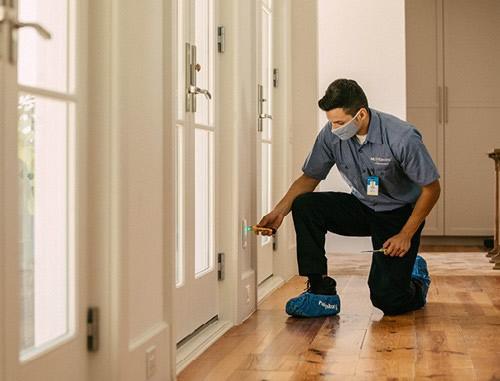24-Hour Emergency Electricians in Fort Worth, TX
Call this Wednesday to Get 10% OFF
Need an electrician?
Schedule NowRequest Electrical Service Now
817-585-299324-Hour Emergency Electricians in Fort Worth, TX
Call this Wednesday to Get 10% OFF
Need an electrician?
Schedule NowRequest Electrical Service Now
817-585-2993
Ensuring the proper functioning of electrical outlets in your home or office is crucial for both convenience and safety. Outlets may have problems like loose connections, sparking, or even electrical risks as a result of wear and tear or corrosion over time. The choice of whether to replace or repair the outlet becomes critical in these situations.
In this blog post, our professionals from Mr. Electric will delve into the considerations for both options to help you make an informed choice.
Before jumping to conclusions about replacing an outlet, it's essential to assess whether a repair can solve the issue effectively. Professional electricians offer electrical repair services that include problem diagnosis, resolving any underlying causes, and repairing the outlet to get it working again. This option is frequently used for modest problems that can be fixed without requiring a full replacement, such as loose connections or minor damages.
Opting for electrical outlet repair offers several advantages. First of all, especially for small problems, it's usually less expensive than replacement. Furthermore, fixing an outlet could be a quicker fix that saves downtime and hassle. Additionally, you may prolong the life of the outlet and preserve its integrity for a longer period of time by fixing certain issues, which will postpone the need for replacement down the road.
For minor problems, repair is frequently the best option, but replacement is occasionally required. For instance, if an outlet is severely damaged, corroded, or outdated, repairing it may only provide a temporary fix, posing risks of future problems. The safest and best course of action in these situations is to replace the outlet with a new one. Furthermore, electrical outlet replacement can be necessary if you're installing new appliances or updating your electrical system and those products call for alternative outlet arrangements.
Seeking the advice of a certified electrician is essential, regardless of whether you decide to replace or repair. When DIY repairs or installations are attempted without the necessary skills and expertise, they run the risk of becoming serious mishaps or breaking codes. Electrical work can be dangerous. A certified electrician can precisely evaluate the state of your outlets, suggest the best course of action based on your requirements, and guarantee that the job is completed safely and in accordance with the law.
Whether to replace or repair an outlet depends on a number of things. Important factors to take into account include the severity of the problem, the age and state of the outlet, and your long-term goals for your home. Budgetary restrictions and the availability of suitable substitute outlets may also have an effect on your choice. You can make an informed decision that puts safety, effectiveness, and affordability first by carefully weighing these variables and speaking with a reliable electrician.
There isn't a universal solution when it comes to the argument between outlet replacement and repair. The optimal course of action is dependent on a number of variables, such as the nature of the issue, the state of the outlet, and your unique needs. For small faults, repair may be sufficient, but when dealing with more serious difficulties or when upgrading your electrical system, replacement is frequently required. Whichever option you decide on, you must hire a licensed electrician to guarantee that the job is completed safely and correctly. You can keep your house or place of business's electrical system dependable and operational for many years to come by making wise decisions and placing a high priority on electrical safety.